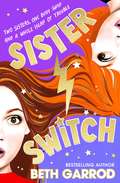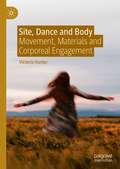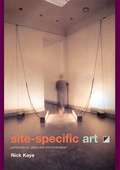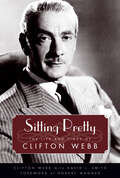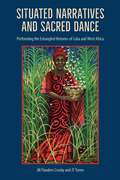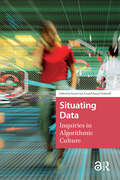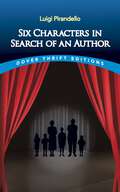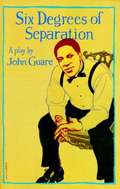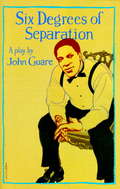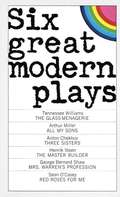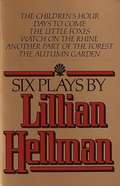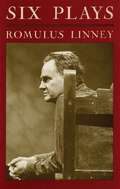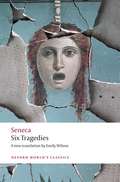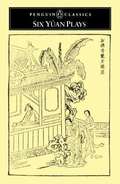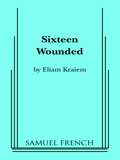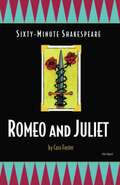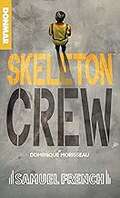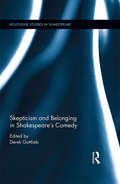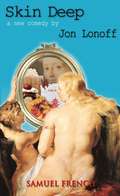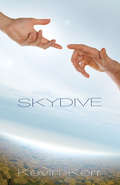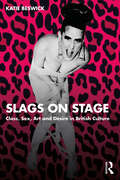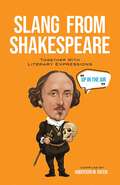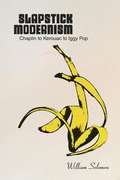- Table View
- List View
Sister Switch
by Beth GarrodA laugh-out-loud, modern take on the ever popular body-swap story from bestselling author Beth Garrod. Perfect for 9+ fans of Rachel Renée Russell's Dork Diaries and Alesha Dixon&’s Star Switch. Twelve-year-old Lily Mavers and her sister, Erin, do not get on. It doesn&’t help that Lily has nothing in common with her overachieving, Grade A student sister. But after an emergency trip to the oddly named Hairy Godmother salon, Lily and Erin leave with much more than a new look – they&’ve got a whole new life. Because the sisters have undergone a full-on body switch and they're about to find out that life in each other's shoes is much harder than it looks!Praise for Sister Switch: &‘World-class and whip-smart comedy magically mixed with a sweet message about sibling friendship. I absolutely loved it!&’ Sibéal Pounder, bestselling author of the Bad Mermaid series
Site, Dance and Body: Movement, Materials and Corporeal Engagement
by Victoria HunterHow does the moving, dancing body engage with the materials, textures, atmospheres, and affects of the sites through which we move and in which we live, work and play? How might embodied movement practice explore some of these relations and bring us closer to the complexities of sites and lived environments?This book brings together perspectives from site dance, phenomenology, and new materialism to explore and develop how ‘site-based body practice’ can be employed to explore synergies between material bodies and material sites. Employing practice-as-research strategies, scores, tasks and exercises the book presents a number of suggestions for engaging with sites through the moving body and offers critical reflection on the potential enmeshments and entanglements that emerge as a result. The theoretical discussions and practical explorations presented will appeal to researchers, movement practitioners, artists, academics and individuals interested in exploring their lived environments through the moving body and the entangled human-nonhuman relations that emerge as a result.
Site-Specific Art: Performance, Place and Documentation
by Nick KayeSite-Specific Art charts the development of an experimental art form in an experimental way. Nick Kaye traces the fascinating historical antecedents of today's installation and performance art, while also assembling a unique documentation of contemporary practice around the world. The book is divided into individual analyses of the themes of space, materials, site, and frames. These are interspersed by specially commissioned documentary artwork from some of the world's foremost practitioners and artists working today. This interweaving of critique and creativity has never been achieved on this scale before. Site-Specific Art investigates the relationship of architectural theory to an understanding of contemporary site related art and performance, and rigorously questions how such works can be documented. The artistic processes involved are demonstrated through entirely new primary articles from: * Meredith Monk * Station House Opera * Brith Gof * Forced Entertainment. This volume is an astonishing contribution to debates around experimental cross-arts practice.
Sitting Pretty: The Life and Times of Clifton Webb (Hollywood Legends Series)
by Clifton WebbMore than any other male movie star, the refined Clifton Webb (1889-1966) caused the moviegoing public to change its image of a leading man. In a day when leading men were supposed to be strong, virile, and brave, Clifton Webb projected an image of flip, acerbic arrogance. He was able to play everything from a decadent columnist (Laura) to a fertile father (Cheaper by the Dozen and The Remarkable Mr. Pennypacker), delivering lines in an urbanely clipped, acidly dry manner with impeccable timing. Long before his film career began, Webb was a child actor and later a suavely effete song-and-dance man in numerous Broadway musicals and revues. The turning point in his career came in 1941 when his good friend Noël Coward cast him in Blithe Spirit. Director Otto Preminger saw Webb's performance and cast him in Laura in 1944. Webb began to write his autobiography, but he said that he eventually had gotten “bogged down” in the process. However, he did complete six chapters and left a hefty collection of notes that he intended to use in the proposed book. His writing is as witty and sophisticated as his onscreen persona. Those six chapters, information and voluminous notes, and personal research by coauthor David L. Smith provide an intimate view of an amazingly talented man's life and times.
Situated Narratives and Sacred Dance: Performing the Entangled Histories of Cuba and West Africa
by Jill Flanders Crosby Jt TorresUsing storytelling and performance to explore shared religious expression across continentsThrough a revolutionary ethnographic approach that foregrounds storytelling and performance as alternative means of knowledge, Situated Narratives and Sacred Dance explores shared ritual traditions between the Anlo-Ewe people of West Africa and their descendants, the Arará of Cuba, who were brought to the island in the transatlantic slave trade.The volume draws on two decades of research in four communities: Dzodze, Ghana; Adjodogou, Togo; and Perico and Agramonte, Cuba. In the ceremonies, oral narratives, and daily lives of individuals at each fieldsite, the authors not only identify shared attributes in religious expression across continents, but also reveal lasting emotional, spiritual, and personal impacts in the communities whose ancestors were ripped from their homeland and enslaved. The authors layer historiographic data, interviews, and fieldnotes with artistic modes such as true fiction, memoir, and choreographed narrative, challenging the conventional nature of scholarship with insights gained from sensorial experience.Including reflections on the making of an art installation based on this research project, the volume challenges readers to imagine the potential of approaching fieldwork as artists. The authors argue that creative methods can convey truths deeper than facts, pointing to new possibilities for collaboration between scientists and artists with relevance to any discipline.Publication of the paperback edition made possible by a Sustaining the Humanities through the American Rescue Plan grant from the National Endowment for the Humanities.
Situating Data: Inquiries in Algorithmic Culture (MediaMatters)
by Karin van Es; Nanna VerhoeffTaking up the challenges of the datafication of culture, as well as of the scholarship of cultural inquiry itself, this collection contributes to the critical debate about data and algorithms. How can we understand the quality and significance of current socio-technical transformations that result from datafication and algorithmization? How can we explore the changing conditions and contours for living within such new and changing frameworks? How can, or should we, think and act within, but also in response to these conditions?, This collection brings together various perspectives on the datafication and algorithmization of culture from debates and disciplines within the field of cultural inquiry, specifically (new) media studies, game studies, urban studies, screen studies, and gender and postcolonial studies. It proposes conceptual and methodological directions for exploring where, when, and how data and algorithms (re)shape cultural practices, create (in)justice, and (co)produce knowledge
Six Characters in Search of an Author (Dover Thrift Editions: Plays)
by Luigi PirandelloThis 1921 intellectual comedy contrasts illusion with reality by introducing 6 individuals to a bare stage occupied by actors in rehearsal. Proclaiming themselves the incomplete creations of an author's imagination, the 6 demand dialog for the story of their lives. A classic dramatic exploration of the many faces of reality. Publisher's Note.
Six Degrees of Separation: A Play
by John GuareIn this soaring and deeply provacative tragicomedy of race, class, and manners, John Guare has created the msot important American play in years. Six Degrees of Separation is one of those rare works that capture both the supercharged pulse of our present era and the deepest and most mysterious movements of the human heart.Six Degrees of Separation won the 1990 New York Drama Critics Circle Award for Best Play, as well as the Hull Warriner Award and the Obie.
Six Great Modern Plays
by Anton ChekhovA collection of modern--yet timeless--plays: "The Glass Menagerie," by Tennessee Williams; "All My Sons," by Arthur Miller; "Three Sisters," by Anton Chekhov; "The Master Builder," by Henrik Ibsen; "Mrs. Warren's Profession," by George Bernard Shaw; and "Red Roses for Me," by Sean O'Casey.
Six Plays
by Lillian HellmanThese six plays span nearly twenty years of theatre and display the range of Lillian Hellman's dramatic gifts. The Children's Hour (1934), her first play, was considered shocking at the time; it concerns the devastating effects of a child's malicious charge of lesbianism against two of her teachers. Days to Come (1936) is about the tragic consequences of strike-breaking in a small Midwestern community. The Little Foxes (1939) and Another Part of the Forest (1946) together constitute a chilling study of the financial and psychological conflicts within the Hubbards, a wealthy and rapacious Southern family. Watch on the Rhine (1941), the story of how fascism affects an American family and the refugees they harbor, won the New York Drama Critics Circle Award. The Autumn Garden (1951) is a poignant yet humorous drama set at a summer resort near New Orleans.
Six Plays
by Romulus LinneyUniquely adept at capturing the idiomatic poetry of his native South, Linney maneuvers with equal grace through the vernacular of New York's contemporary intelligentsia and the voices of a wide range of historical figures. "...one of our most perceptive chroniclers of the folkways of rural America, finding humanity and nobility in the most remote of places."--Mel Gussow, The New York Times
Six Tragedies (Oxford World's Classics)
by Emily Wilson Seneca Corporation StaffHere is a lively, readable, and accurate verse translation of the six best plays by one of the most influential of all classical Latin writers--the only tragic playwright from ancient Rome whose work survives. Tutor to the emperor Nero, Seneca lived through uncertain, oppressive, and violent times, and his dramas depict the extremes of human behavior. Rape, suicide, child-murder, incestuous love, madness, and mutilation afflict the characters, who are obsessed and destroyed by their feelings. Seneca forces us to think about the difference between compromise and hypocrisy, about what happens when emotions overwhelm judgment, and about how a person can be good, calm, or happy in a corrupt society and under constant threat of death. In addition to her superb translation, Emily Wilson provides an invaluable introduction which offers a succinct account of Seneca's life and times, his philosophical beliefs, the literary form of the plays, and their immense influence on European literature. The book also includes an up-to-date bibliography and explanatory notes which identify mythological allusions.
Six Yuan Plays
by Liu Jung-EnAlthough their Mongol overlords (beginning with the founding of the Yuan dynasty by Kublai Khan in 1280) tyrannized the Chinese in nearly every area of life, the arts enjoyed a new-found freedom. On the one hand oppressed, on the other released from the straight-jacket of Confucianism, the Chinese made the most of recent developments in poetry and drama. Yuan plays were a tonic, an amazing spectacle—colorful outbursts of singing, dancing, music, acting and mime. They poured new life into old stories—oppressors were ridiculed, servants became masters, scenes changed, day followed night in the twinkling of an eye—and audiences flocked to enjoy what must have been complete entertainment.
Sixteen Wounded
by Eliam KraiemFull Length, Dramatic Comedy \ Int. \ 3m, 2f \ Sixteen Wounded is a play told with both humor and heart wrenching honesty, which revolves around the fateful colliding of two seemingly disparate lives - a lonely, emotionally remote Jewish baker, and a passionate, young Palestinian far from home. A friendship evolves as the two men struggle with their personal identities and their loyalties - to their past, their beliefs, and, finally, to each other. But can this relationship stave off the inevitable? \ "Kraiem's tender humanism leaves room for hope, even in a world more complicated than some would like to acknowledge." - USA Today
Sixty-minute Shakespeare: Romeo And Juliet
by William Shakespeare Cass FosterThe introduction to SHAKESPEARE is not an easy task. Sometimes the magic can use a little assistance! To make the works of Shakespeare accessible to all ages and levels of education, Cass Foster combines his experience as a professor emeritus of theatre, fight choreographer, and stage director to provide the Sixty-Minute Shakespeare series. Foster’s renditions of the timeless tales are not adaptations or modernizations, but rather judiciously condensed versions of the Bard's classics.
Skeleton Crew
by Dominique MorisseauAt the start of the Great Recession one of the last auto stamping plants in Detroit is on shaky ground. Each of the workers have to make choices on how to move forward if their plant goes under. Shanita has to decide how she'll support herself and her unborn child Faye has to decide how and where she'll live and Dez has to figure out how to make his ambitious dreams a reality.
Skepticism and Belonging in Shakespeare's Comedy (Routledge Studies in Shakespeare)
by Derek GottliebThis book recovers a sense of the high stakes of Shakespearean comedy, arguing that the comedies, no less than the tragedies, serve to dramatize responses to the condition of being human, responses that invite scholarly investigation and explanation. Taking its cue from Stanley Cavell’s influential readings of Othello and Lear, the book argues that exposure or vulnerability to others is the source of both human happiness and human misery; while the tragedies showcase attempts at the evasion of such vulnerability through the self-defeating pursuit of epistemological certainty, the comedies present the drama and the difficulty of turning away from an epistemological register in order to productively respond to the fact of our humanity. Where Shakespeare’s tragedies might be viewed in Cavellian terms as the drama of skepticism, Shakespeare’s comedies then exemplify the drama of acknowledgement. As a parallel and a preamble, Gottlieb suggests that the field of literary studies is itself a site of such revealing responses: where competing research methods strive to foreclose upon (or, alternatively, rejoice in) epistemological uncertainty, such commitments bespeak an urge to avoid or circumvent the human in the practice of scholarship. Reading Shakespeare’s comedies in tandem with a "defactoist" view of teaching and learning points in the direction of a new humanism, one that eschews both the relativism of old deconstruction and contemporary Presentism and the determinism of various kinds of structural accounts. This book offers something new in scholarly and popular understanding of Shakespeare’s work, doing so with both philosophical rigor and literary attention to the difficult work of reading.
Skin & Liars
by Dennis FoonSkin introduces us to a group of Canadian teenagers who are coming of age in the late 1980s. Faced with racial discrimination, Phiroza, Jennifer, and Tuan must navigate the choppy waters of high school, each confronting his or her own set of challenges. Ranging from academic difficulties, to budding relationships, to the trials of adapting to a foreign language and culture, the three share their stories of struggle, survival, and defiance of negative expectations and racist attitudes. Lenny is at the top of her class. Jace seemingly couldn't care less. By all appearances these two classmates are polar opposites, but despite all their differences they are inexplicably drawn towards one another. When it is revealed that each has been trying to hide the same dark secret—that they share a home with an alcoholic parent—each decides to take action and confront the demon they call "Mom" or "Dad."
Skin Deep
by Jon LonoffComedy / 2m, 2f / Single Set In Skin Deep, a large, lovable, lonely-heart, named Maureen Mulligan, gives romance one last shot on a blind-date with sweet awkward Joseph Spinelli; she's learned to pepper her speech with jokes to hide insecurities about her weight and appearance, while he's almost dangerously forthright, saying everything that comes to his mind. They both know they're perfect for each other, and in time they come to admit it. They were set up on the date by Maureen's sister Sheila and her husband Squire, who are having problems of their own: Sheila undergoes a non-stop series of cosmetic surgeries to hang onto the attractive and much-desired Squire, who may or may not have long ago held designs on Maureen, who introduced him to Sheila. With Maureen particularly vulnerable to both hurting and being hurt, the time is ripe for all these unspoken issues to bubble to the surface. "Warm-hearted comedy ... the laughter was literally show-stopping. A winning play, with enough good-humored laughs and sentiment to keep you smiling from beginning to end." - TalkinBroadway.com "It's a little Paddy Chayefsky, a lot Neil Simon and a quick-witted, intelligent voyage into the not-so-tranquil seas of middle-aged love and dating. The dialogue is crackling and hilarious; the plot simple but well-turned; the characters endearing and quirky; and lurking beneath the merriment is so much heartache that you'll stand up and cheer when the unlikely couple makes it to the inevitable final clinch." - NYTheatreWorld.Com "In a country obsessed with weight, plastic surgery, dating and infidelity, it is little wonder that a playwright has come along to tackle all of these sticky subjects in a new satirical comedy called Skin Deep. This particular production has the virtue of having vital components on firm ground. The crowd delighted in every one-liner the night I attended." - ELJArtsAnnex.Com "Laugh out loud hysterical." -CurtainUp.Com
Skin Flick
by Norm FosterMiddle-aged couple Daphne and Rollie and their friend Alex have found themselves out of work and out of luck. So when they come across a mistakenly rented X-rated movie, they get the idea to make their own porno film for some quick cash. The only problem is none of them want to star in it themselves. As if on cue, Jill, a birthday telegram messenger, accidentally arrives on their doorstep and their cast is set.
Skydive
by Kevin KerrHaving grown apart after a traumatic and defining moment in their youth, two brothers reconnect to fulfill a life-long ambition to go skydiving. Skydive explores the world of dreams and imagination: the universal human desire to push beyond our physical limitations and to fly.
Slags on Stage: Class, Sex, Art and Desire in British Culture
by Katie BeswickSlags on Stage weaves cultural analysis with poetry and art criticism to explore the concept of the ‘slag’ and its place in contemporary British culture.The book traces the etymology of the word slag through the twentieth and into the twenty-first century, thinking through the ways ‘slag’ speaks to issues of class, sex and desire. Broadly, slag is an insult bound up with women’s sexual reputations – but beyond this it is a ‘key’ word that shapes the ways we debate and understand what it means to be a woman. For women who came of age in the United Kingdom in the late twentieth and early twenty-first centuries ‘slag’ produces complex feelings and has influenced how we have come to know ourselves and understand our sexual and quotidian desires. This book explores the terrain of slag and includes analyses of artworks by artists who have invoked the slag in their practice, including Tracey Emin, Cash Carraway and Michaela Coel. Covering the cultural politics of clothing, motherhood, television representations, sexual assault, sex work and desire, Slags on Stage asks: what role does the ‘slag’ play in British culture? Who is she for? And how have women used sex and sexuality to have their own say in cultures that want to control them?This is a fascinating exploration for students and scholars of British drama, theatre and performance, cultural studies and sociology.
Slang from Shakespeare: Together with Literary Expressions
by Anderson M. Baten“It was Greek to me.” This handy reference showcases William Shakespeare’s genius, compiling over 1,500 of his most famous epigrams, invectives, literary expressions, and philosophical poems that have found their way into our everyday vernacular.
Slapstick Modernism: Chaplin to Kerouac to Iggy Pop
by William SolomonSlapstick comedy landed like a pie in the face of twentieth-century culture. Pratfalls and nyuk-nyuks percolated alongside literary modernism throughout the 1920s and 1930s before slapstick found explosive expression in postwar literature, experimental film, and popular music. William Solomon charts the origins and evolution of what he calls slapstick modernism --a merging of artistic experimentation with the socially disruptive lunacy made by the likes of Charlie Chaplin. Romping through texts, films, and theory, Solomon embarks on a harum-scarum intellectual odyssey from high modernism to the late modernism of the Beats and Burroughs before a head-on crash into the raw power of punk rock. Throughout, he shows the links between the experimental writers and silent screen performers of the early century, and explores the potent cultural undertaking that drew inspiration from anarchical comedy after World War Two.
